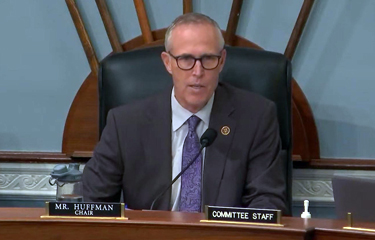MSA reauthorization debated in US House of Representatives

Two bills that would reauthorize the Magnuson-Stevens Fishery Conservation and Management Act received a hearing on Tuesday, 16 November, in the U.S. House Natural Resources Subcommittee on Water, Oceans, and Wildlife.
As U.S. Rep. Don Young (R-Alaska) said in a statement, the hearing was “one of contrasts,” as lawmakers reviewed his proposal and one by Subcommittee Chairman Jared Huffman (D-California). Young said Huffman’s bill would take authority away from fishing councils and give it to the U.S. Commerce Secretary. While he agrees with Huffman that some changes should be discussed, Young said the chairman’s bill goes too far.
“I do not believe in throwing the baby out with the bathwater,” Young said. “I trust our fishing councils to make the best decisions for commercial, sport, recreational, and subsistence fishing.”
The Magnuson-Stevens Act (MSA), the law governing U.S. federal fisheries management, passed 45 years ago and has subsequently been amended several times. It was last reauthorized in 2006, and attempts by lawmakers to reauthorize MSA in recent years have been unsuccessful.
Huffman filed his bill, H.R. 4690, on 26 July, 2021, after embarking on a listening tour and meeting with stakeholders across the country.
Young filed his bill, H.R. 59, in February, though he had previously said he was keeping an open mind toward Huffman’s bill.
In a statement, Huffman said MSA reauthorization is necessary now because the 2006 reauthorization did not deal with several pressing issues, with climate change foremost among them, as well as reforms to the governing powers of NOAA's eight regional fishery councils.
“It is more critical now than ever that any extractive practices focus on sustaining and conserving our entire marine ecosystem,” Huffman said. “The Magnuson-Stevens Act has been and will continue to be our main tool for establishing and administering sound fishing practices and we have to be sure it works now and into the next generations.”
Huffman’s bill received support from several witnesses during Tuesday’s hearing. Mary Peltola, executive director for the Kuskokwim River Inter-Tribal Fish Commission, said in her written comments that Huffman’s proposal would improve equity in the fishery management process. That includes adding two seats for tribes to the North Pacific Fishery Management Council.
“H.R. 4690 makes important changes to provide more balance in the council system by requiring broader representation and more balanced appointments,” she said. “These are essential changes to a broken system, and we support them wholeheartedly.”
However, Marc Gorelnik, chairman of the Pacific Fishery Management Council and chairman of the Council Coordination Committee (CCC), said that other changes Huffman has proposed have the CCC concerned. For example, he said in his written testimony that councils estimate the maximum sustainable yield for species under current and future conditions.
“In many of our fisheries, estimating MSY under current conditions is difficult or impossible, so it is not likely it could be done for future conditions either,” Gorlenik wrote. “Where MSY can be estimated, doing so under possible future conditions would be a complex challenge. It is not clear how such information would be used to inform current management.”
Even with his concerns, Young said that he would continue to work with Huffman on a bipartisan basis for bring a “consensus-based” reauthorization bill to the House floor.
There is some time on their side. The current session of Congress does not end until early January 2023.
The MSA reauthorization bills weren’t the only ones taken up by the subcommittee on Tuesday. It also heard testimony on the H.R. 5770, the Forage Fish Conservation Act of 2021 that is sponsored by U.S. Rep. Debbie Dingell (D-Michigan) and Rep. Brian Mast (R-Florida).
In a press release earlier this month announcing the bill, Dingell and Mast said the bill would give greater protection for forage fish, such as herring, that are prey for key species.
The bill is backed by such groups as The Pew Charitable Trusts and the American Saltwater Guides Association. A similar bill was introduced in the U.S. Senate in April 2021.
“Some regional fishery management councils have been proactive in developing safeguards to protect forage fish, such as the Mid-Atlantic Fishery Management Council’s adoption of its Unmanaged Forage Omnibus Amendment in 2016,” ASGA Executive Director Willy Goldsmith said. “However, a national framework for conserving these species is sorely needed.”
Some, though, have challenged the need for added conservation measures. Earlier this summer, a study funded by the Science Center for Marine Fisheries found that such management practices would not likely provide any conservation or environmental benefits.
"Management of forage fish populations should be based on data that are specific to that forage fish, and to their predators," said Olaf Jensen, an associate professor of limnology research at the University of Wisconsin-Madison and an author of the report. "When there aren't sufficient data to conduct a population-specific analysis, it's reasonable to manage forage fish populations for maximum sustainable yield, as we would other fish populations under the Magnuson-Stevens Act."
Photo courtesy of U.S. House of Representatives, Committee Repository






Share